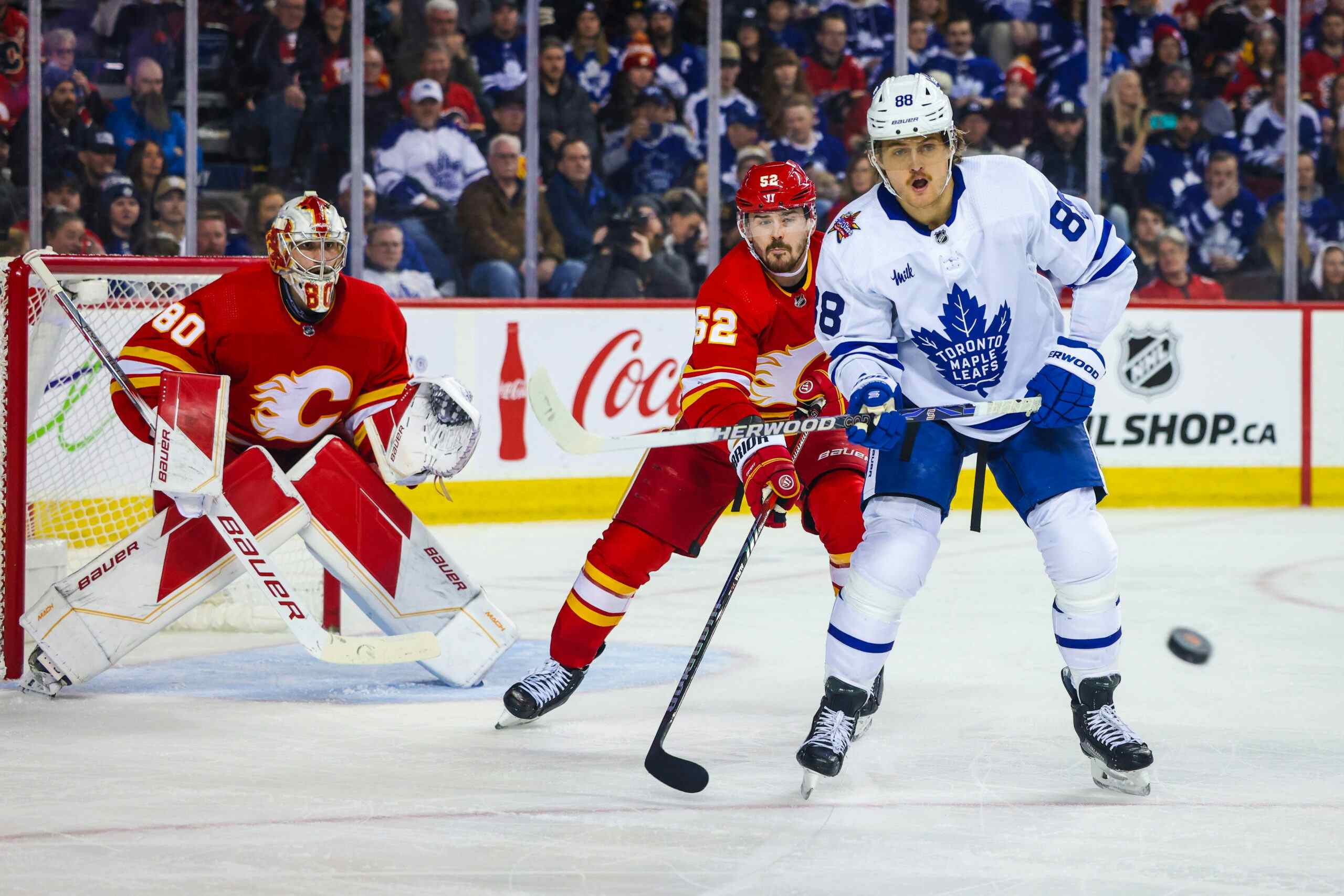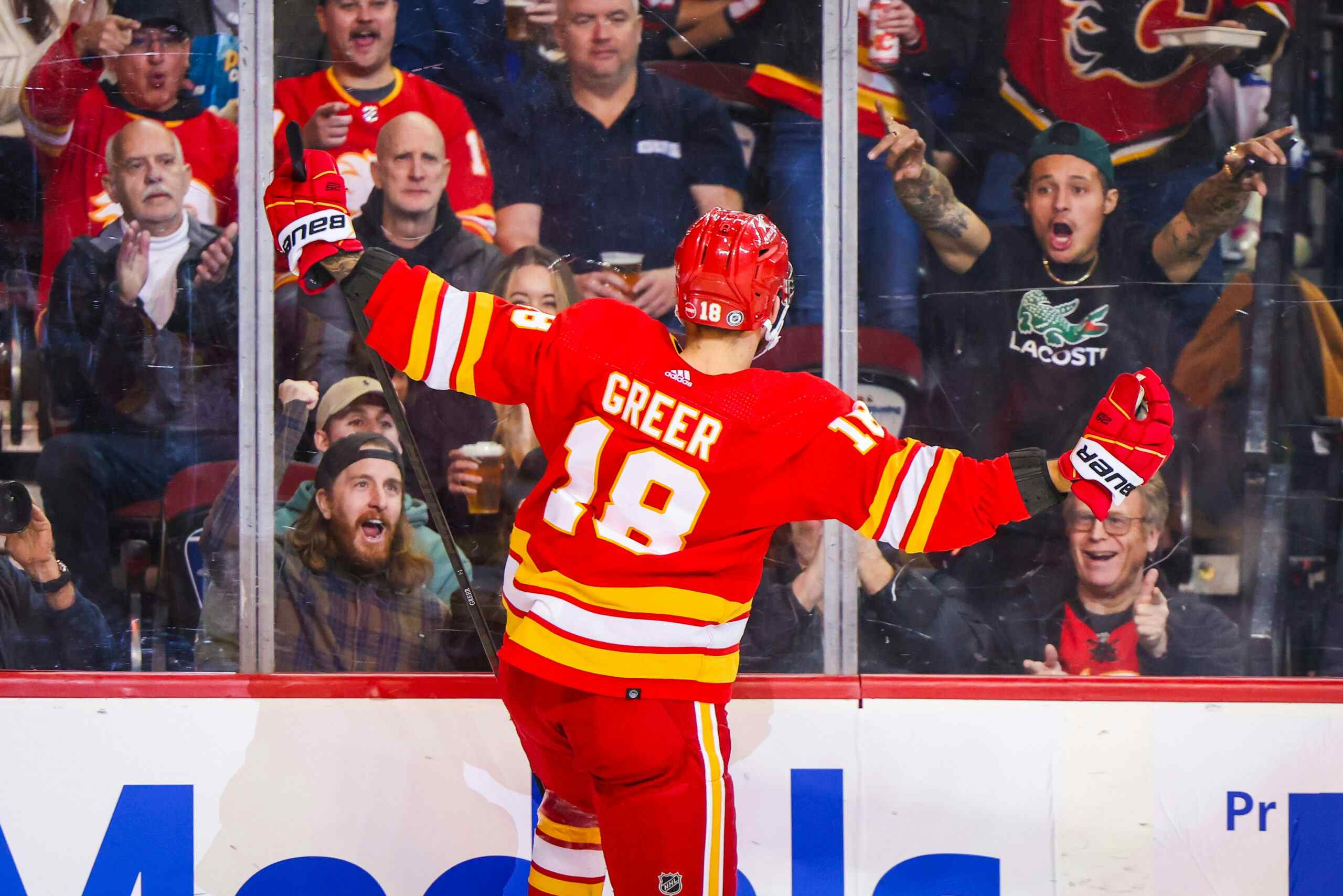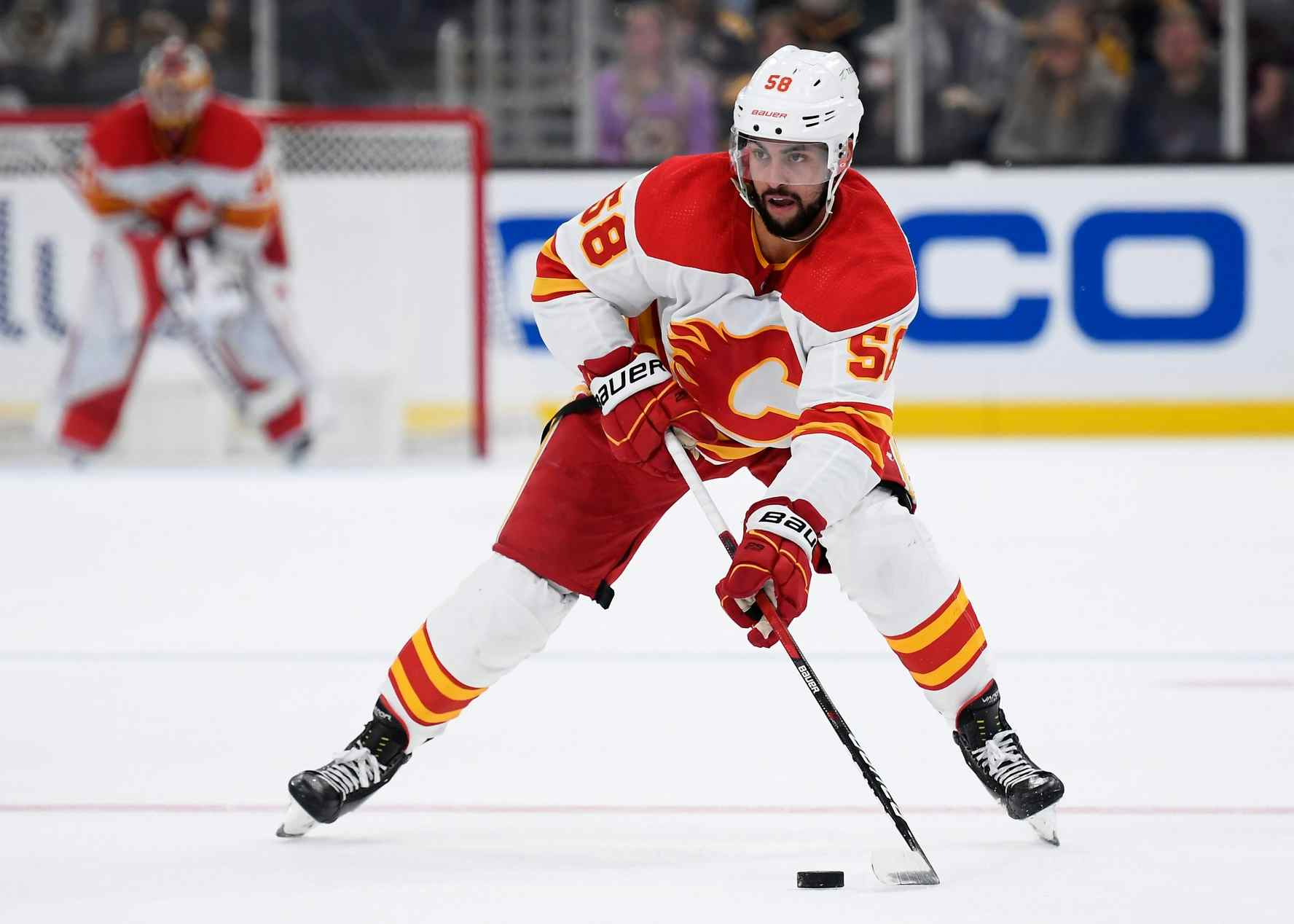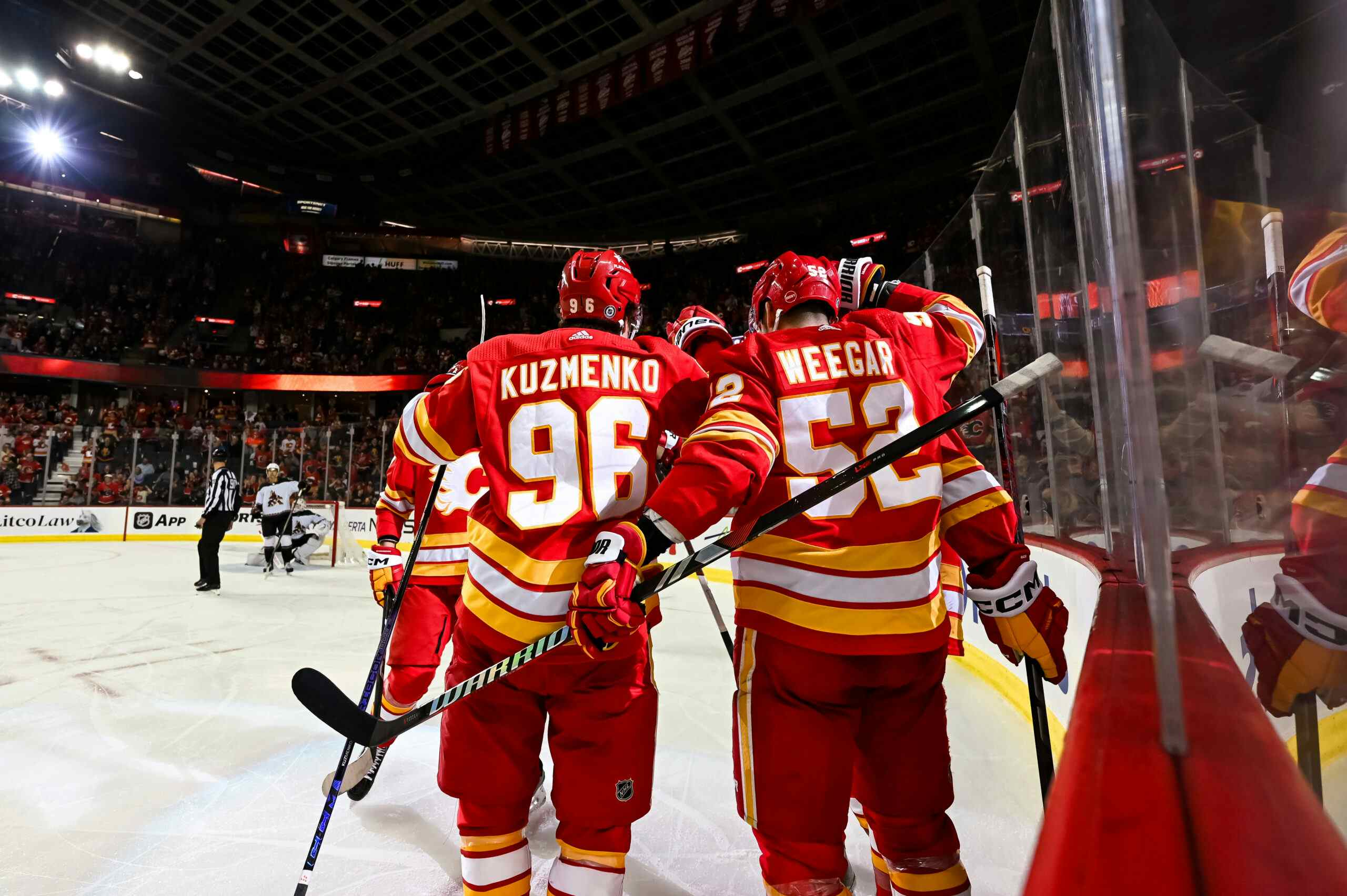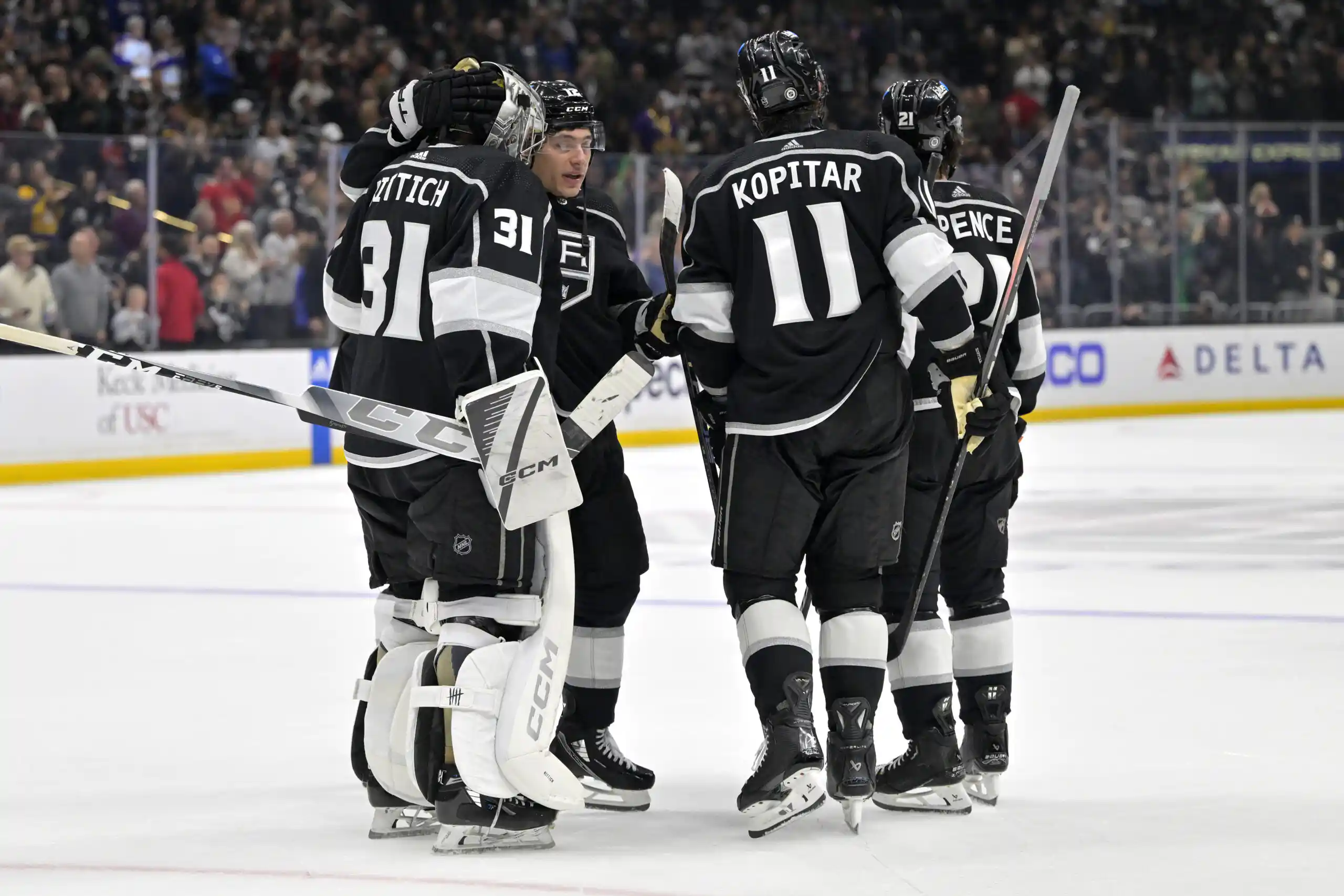Historically Flames record at the break determines their finish
By Ryan Pike
8 years agoAside from the years where the season is cut short by a labour dispute, traditionally the NHL has a break in late January or February. Sometimes it’s for the All-Star Game and sometimes it’s for the Olympics, but there’s usually break for fans, athletes and media alike to have a nap, see our families and perhaps have a quick vacation to recharge.
As you can expect, how well (or poorly) the Flames are doing at these breaks has a big impact on how the team does once they’re rested up and on the general manager’s strategy at the trade deadline – which is usually a few weeks after they get back from their break.
2014-15
Record At All-Star Break: 25-19-3 (in second wildcard spot, 2 points from divisional spot)
Record After All-Star Break: 20-11-4 (made playoffs in divisional spot)
Trade Deadline Approach: First-year General Manager Brad Treliving engaged in what I term a “strategic sell-off,” offloading players that weren’t really part of the team’s future plans anyway. Curtis Glencross was offloaded to Washington for a couple of picks, and Sven Baertschi was sent to Vancouver for a pick as well. They also claimed David Schlemko off waivers to give the team some depth in the absence of the injured Mark Giordano.
2013-14
Record At Olympic Break: 22-29-7 (13 points out of wildcard spot, 17 points out of divisional spot)
Record After Olympic Break: 13-11-0 (missed playoffs by 14 points)
Trade Deadline Approach: Interim general manager Brian Burke also engaged in a strategic sell-off. He kept arguably the team’s biggest trading chip (Mike Cammalleri) due in part because the offers weren’t high enough. (Rumour has it the best offer the Flames got for him was a third rounder.) Lee Stempniak was traded to Pittsburgh for a third round pick, and backup goalie Reto Berra was somehow flipped to Colorado for a second rounder.
2011-12
Record At All-Star Break: 23-21-6 (3 points out of playoff spot)
Record After All-Star Break: 14-8-10 (missed playoffs by 5 points)
Trade Deadline Approach: The Flames stood pat, with then-general manager Jay Feaster leaning on his “this group deserves a chance to win” mantra. The only deadline move was re-signing Tim Jackman, with the logic that if other teams made trade offers, that means Jackman must be worth retaining. Right.
(Are you shocked that this was Feaster’s last deadline?)
2010-11
Record At All-Star Break: 24-21-6 (2 points out of playoff spot)
Record After All-Star Break: 17-8-6 (missed playoffs by 3 points)
Trade Deadline Approach: Feaster made a couple tinkers, claiming depth defender Brett Carson off of waivers and trading a late-round pick to Atlanta for Freddie Modin, who spent the majority of his tenure injured and then retired in the off-season.
2009-10
Record At Olympic Break: 30-23-9 (in playoff spot)
Record After Olympic Break: 10-9-1 (missed playoffs by 5 points)
Trade Deadline Approach: Then-GM Darryl Sutter was busy, though none of his moves were especially prudent or panned out in positive ways. He traded Dustin Boyd to Nashville for a pick (that eventually turned into Bill Arnold), acquired Steve Staios from Edmonton – breaking the decades-long Battle of Alberta trade moratorium and birthing our Staios! Is! Available! meme – and he swapped Curtis “McBackup” McElhinney to Atlanta for Vesa Toskala.
Recent articles from Ryan Pike

